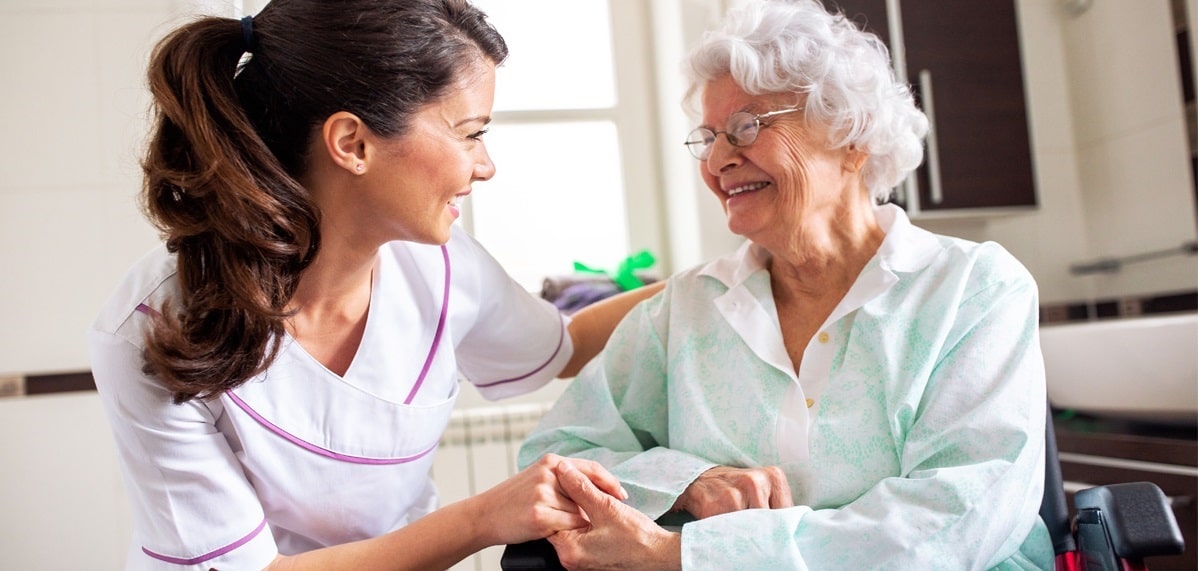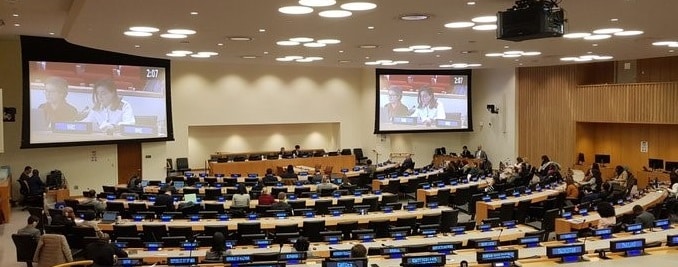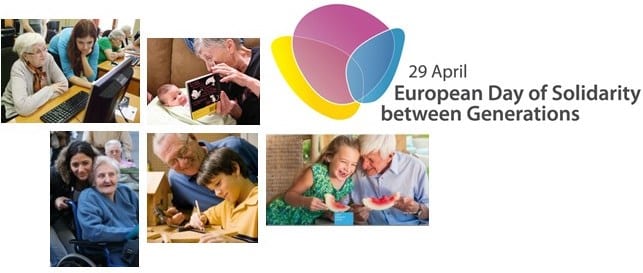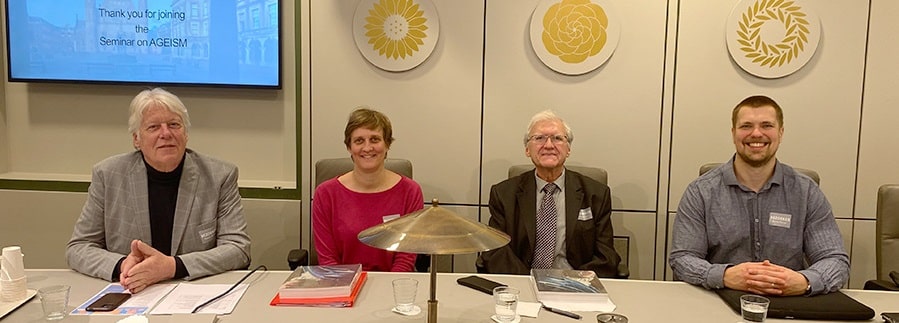eHealth – SHAPES workshop shares encouraging results from project pilot sites

AGE supported the organisation of the 7th SHAPES Dialogue Workshop which showcased the results of the project pilot sites and governance model in the use of digital technologies for healthy ageing. The EU funded SHAPES project (Smart and Healthy Ageing through People Engaging in supportive Systems) aims to foster healthy and independent ageing in supporting […]
Launch of new EU Pact for Skills Partnership for Long-Term Care

Supported by the European Commission, a new EU partnership will foster the upskilling and reskilling of care workers and providers to improve the quality of long-term care while making the sector more attractive. In the frame of the EU Pact for Skills, long-term care service providers, social partners and education providers have set up a […]
New unit within the European Commission will address ageing and human rights

The establishement of the new unit to deal with non-discrimination and ageing issues at the Directorate General Justice and Consumers rewards AGE long-standing efforts to convince EU leaders of the need to strengthen and coordinate policies on ageing. The ‘Nondiscrimination: LGBTQ, Age, Horizontal Matters’ unit of the Directorate-General Justice and Consumers was set up in […]
New guide and toolkit on age-friendly cities and communities

The World Health Organization (WHO) promotes an age-friendly approach that makes sure every member of our community gets the full support they need to maximise their potential, no matter their age. WHO’s new guide and toolkit aims to support this approach at national level.
Joint Factsheet on inclusive payment methods

Together with BEUC – the Consumers’ Voice at EU level, we have published a joint factsheet on inclusive payment methods. In this document we outline the various factors preventing consumers from using digital payment methods and provide recommendations to address them.
AGE joins new EU project addressing violence against older women

Improving coordination to address violence against older women is the objective of the new EU-funded project MARVOW 2.0 recently kicked off in Vienna, Austria. The event was the opportunity to meet the partners involved in the project and discuss the activities planned for the next 3 years. Violence against older women is invisible Very few […]
Value-based Care Model: A new strategy to transform the delivery of care

On 20 and 21 April we met with the partners of the EU-funded project ValueCare in Athens, Greece, to explore a new vision of care focused on outcome and the real value offered to older people. AGE is part of the EU Project ValueCare (2021-2024) funded by Horizon2020, which aims to deliver a new vision […]
Policy recommendations for person-centred integrated health and care

AGE has drafted policy recommendations on integrated person-centred care as part of the EU-funded project SHAPES, which aims to better centralize digital solutions for personalized care. The Horizon2020-funded SHAPES project aimed to build an interoperable platform integrating smart digital solutions to improve the quality of life of older adults with impairments and people with disabilities. […]
Civil society stronger than ever in urging States to adopt a UN convention on the rights of older persons

Civil society organisations showed strong unity and delivered powerful statements, calling for Member States to start drafting a UN convention on the rights of older persons without delay. This strong mobilisation contrasted with the lack of commitment from governments and the European Union, despite the recognition of the challenges older people face. The 13th […]
Elder abuse and neglect: AGE contribution to upcoming UN report

The Independent Expert on the enjoyment of all human rights by older persons, Dr. Claudia Mahler, will focus her next thematic report to the Human Rights Council in 2023 on violence, abuse and neglect of older persons. We have contributed to a call for inputs on these topics to inform the drafting of this report. […]
29 April – Let’s celebrate Solidarity between Generations!

On 29th April we will be celebrating the EU Day of Solidarity between Generations, launched for the first time in 2009. The successive crises that we have been through over the recent years have made the issue more topical than ever, reminding us how critical intergenerational cooperation and solidarity is in an increasingly divided and […]
Poland is getting age-friendly

The World Health Organization held last March a stakeholder consultation meeting to discuss age-friendly environments in emergency contexts. The meeting was also the opportunity to celebrate Krakow’s recent membership of the WHO Global Network for Age-Friendly Cities and Communities. Hosted in the Jagiellonian University, one of the oldest universities in Europe, the conference brought together […]
Raising political awareness of ageism

On 2nd March, we have been invited to participate in a seminar co-organised by the Jan Nagel Foundation (JNF) and the Institute of European Democrats (IED) in Den Haag. This event was opened by the Chairman of JNF, Gerrit Jan van Otterloo and by the President of IED, Mikel Burzako. It gathered speakers from various […]
Members of the European Parliament call for more respectful language

Ahead of the EU Day of Solidarity between Generations, 29 April, a group of 13 MEPs has called on their peers to be more respectful towards older persons in their institutional language. Even in recent resolutions of the European Parliament that support older persons’ human rights, such as on the situation of human rights in […]
Tribute to Barbro Westerholm

Last 13 March, we sadly lost one of our human rights champions and ‘family members’. Barbro Westerholm had tremendous importance for AGE since its creation. She will be greatly missed. Born in Stockholm, Barbro Westerholm had a long career as a doctor, researcher, civil servant, Member of Parliament, chairman and expert for AGE Swedish member […]
Towards a professional curriculum for Age-Friendly Cities
AGE Platform Europe, CEOMA and Anziani Non Solo teamed up with AFEdemy, Mensajeros de la Paz and SoSu under the Age-Friendly Toolkit (AFC Toolkit) Erasmus+ project. With the goal to develop educational materials (app and training course) and to set up the profile of a professional for inclusive ageing in age-friendly cities, the project partner […]
Council Recommendation on Minimum income: ‘Not enough to fight poverty’

The European Anti-Poverty Network, of which AGE is a member, has published its position on the recently adopted Council Recommendation on Minimum Income. AGE fully supports the statement by EAPN, which lauds the step taken by the adoption of the Recommendation but regrets that it is not a binding instrument like a Framework Directive. Across […]
WHO Forum explored ‘Health in the Well-being Economy’

How can a well-being economy approach create healthy, fairer and more resilient societies for today and the next generation? This was the question discussed at a high-level forum of the World Health Organization (WHO) on 1-2 March. Dr. Liz Mestheneos from our Greek member 50+ Hellas moderated a panel discussion which explored the complexity of […]



